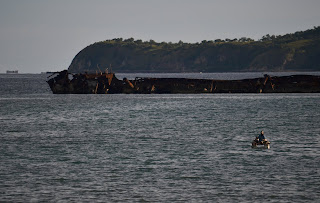View of the day
She came down to the beach
When they told her
And saw the familiar figure
Sitting still, looking out
To sea and the distant horizon
A moment of hesitation
Then the sure-footed steps towards
The figure; she sat down beside him
And took the half-smoked cigarette
From his fingers and smoked with him
The effect of nicotine helping a little
Her sisters came and placed thumbs
Over his eyes to shut them
For this had been the man who kept her
Vigilant 24 hours a day to answer
All her children’s needs, yet she
Could not take him into her family
She replaced the cigarette in his fingers
Fumes rising and sailing by
As they led her away, from the ocean
And the motionless figure
For a moment she thought
She would pause, look back
But walked on
Walking
Amazing how men choose
To walk ahead of others
Believing they are better
Than the rest
They stroll on ahead
Oblivious of the seasons
Walking the talk, talking
The false or truth
But they walk, anyway
Now I could tell you
About my own lover
Who’d once walked the talk
Way, way ahead of me
But that is yet another story
For another time, another place
Somewhere within the galaxy
Ring bark trees
My lover, he’s simply smashing
I tell Charity, my little sis
As we trace the initials carved round
The bark of this ancient tree
So many things carved on this tree
Of and by humanity in passing
Like stars and heart shapes
And diamonds and rings
Next to twelve others
Is my lover’s name
He is the best, I do declare
I notice tears in Charity’s eyes
She weeps for joy, she tells me
I know you are happy, she says
Let there be no other, she prays
Don’t hurt this one, big sis








